Along Cuba’s Coast, The Last Best Coral Reef in the Caribbean Thrives
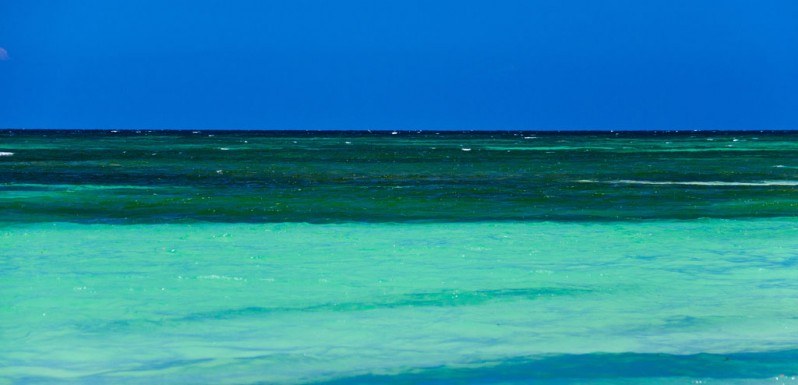
While coral reef cover has declined by 50 percent throughout the Caribbean, Cuba has managed to retain some of the most pristine coral reef environments on earth. Lack of coastal development, limited tourism, small amounts of runoff flowing into the sea, tight controls on commercial fishing, and the establishment of extensive marine protected areas have all combined to give Cuba the most remarkable coral reef environments in the Caribbean.
Artificial Reef Enhancement Underway, North Carolina
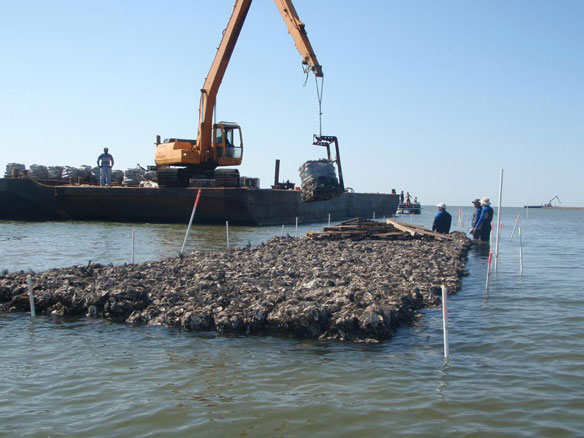
Over the next couple months, more than 2 million tons of concrete material will be dropped over local artificial reefs, providing habitat for ocean life on barren stretches of the sea floor.
Study Projects Unprecedented Loss of Corals in Great Barrier Reef Due to Warming
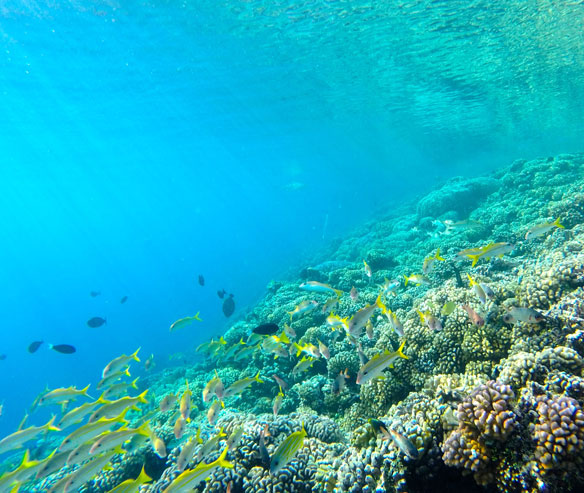
The coverage of living corals on Australia’s Great Barrier Reef could decline to less than 10 percent if ocean warming continues, according to a new study that explores the short- and long-term consequences of environmental changes to the reef.
Hidden Battles on the Reefs
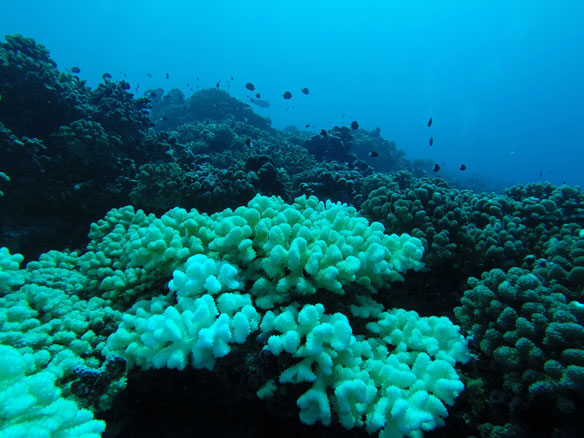
How do you drown a coral reef? The very idea seems unfathomable for animals that spend their entire lives under water. But the deep ocean is actually riddled with “drowned” coral reefs, the remains of ancient reefs that slipped into the dark ocean depths and starved without sunlight.
Coral Reefs Threatened by Changing Ocean Conditions

Erosion rates increase tenfold in areas where corals are also exposed to high levels of nutrients, according to a study published January 2015 in the journal Geology. As sea level rises, these reefs may have a harder time growing toward the ocean surface, where they get sunlight they need to survive.
Coral Reveals Long-Term Link Between Pacific Winds, Global Climate
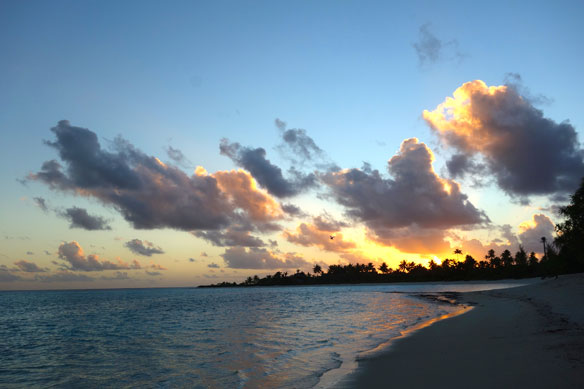
New research indicates that shifts in Pacific trade winds played a key role in twentieth century climate variation and are likely again influencing global temperatures. The study uses a novel method of analyzing coral chemistry to reveal winds from a century ago.
Great Barrier Reef at Risk from Rushed Sediment Dumping Plan at Abbot Point
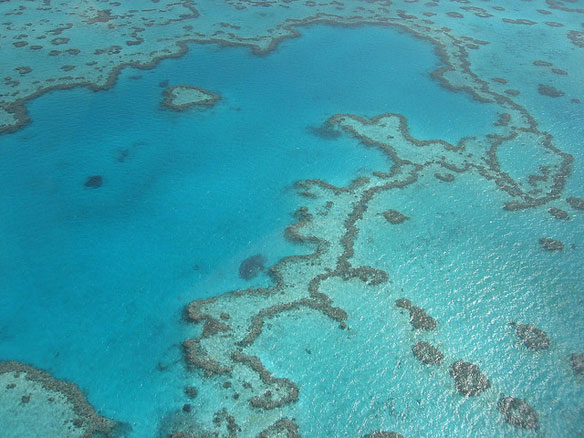
A plan to dump dredged sediment onto a sensitive wetlands area beside the Great Barrier Reef near Abbot Point would lead to much more slurry being pumped into the waters of the reef than officially estimated, a report has warned.
Acidic Oceans Could Quiet Coral Reefs
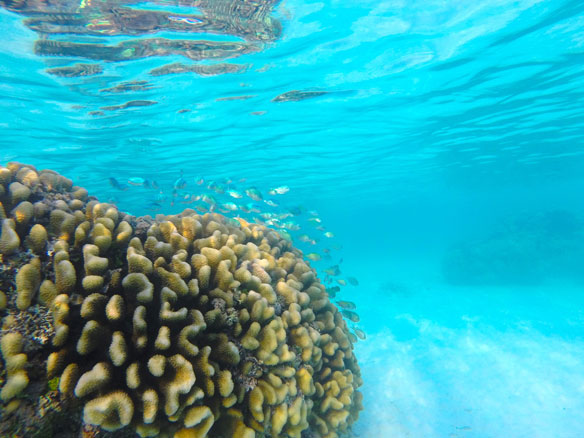
Scientists have been monitoring underwater sounds for decades, in part because sound propagates so efficiently underwater. But in the past 10 years, scientists have started exploring how sonic cues influence fish behavior and give a snapshot of reef health and biodiversity.
Extinction Risk Not the Answer for Reef Futures

Leading coral reef scientists say there needs to be a new approach to protecting the future of marine ecosystems, with a shift away from the current focus on extinction threat
